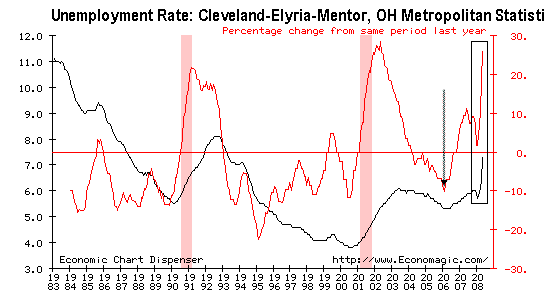Re: Housing Bubble Correction Update: Fasten your seat belts, here comes the jobs cra
My mother, in a desirable, suburban Massachusetts town, is just a few months away from paying off her mortgage. I've been trying to convince her to sell while some of the idiots in Massachusetts are still buying. Hopefully it is not to late and for her sake, she'll listen to E.J., if not me.
My mother, in a desirable, suburban Massachusetts town, is just a few months away from paying off her mortgage. I've been trying to convince her to sell while some of the idiots in Massachusetts are still buying. Hopefully it is not to late and for her sake, she'll listen to E.J., if not me.
 :eek: I have no idea if I might lose my job or not. I don't really feel adequately prepared for such an event, but I'm better prepared than most people out there. Certainly I am relieved to not have the mortgage hanging over my head, or any other debts.
:eek: I have no idea if I might lose my job or not. I don't really feel adequately prepared for such an event, but I'm better prepared than most people out there. Certainly I am relieved to not have the mortgage hanging over my head, or any other debts.
Comment